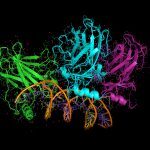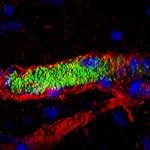Lien vers Pubmed [PMID] – 33811670
Lien DOI – 10.1111/imcb.12458
Immunol Cell Biol. 2021 Apr 3.
Neutrophils are the most abundant circulating white blood cells and are the central players of the innate immune response. During their lifecycle, neutrophils mainly evolve under low oxygen conditions (0.1–4% O2), to which they are well adapted. Neutrophils are atypical cells since they are highly glycolytic, and susceptible to oxygen exposure, which induces their activation and death, through mechanisms, which remain currently elusive. Nevertheless, nearly all studies conducted on neutrophils are carried out under atmospheric oxygen (21%), corresponding to hyperoxia. Here, we investigated the impact of hyperoxia during neutrophil purification and culture on neutrophil viability, activation and cytosolic protein content. We demonstrate that neutrophil hyper‐activation (CD62L shedding) is induced during culture under hyperoxic conditions (24 h), compared to neutrophils cultured under anoxic conditions. Spontaneous neutrophil extracellular trap (NET) formation is observed when neutrophils face hyperoxia during purification or culture. In addition, we show that maintaining neutrophils in autologous plasma is the preferred strategy to maintain their basal state.
Our results show that manipulating neutrophils under hyperoxic conditions leads to the loss of 57 cytosolic proteins during purification, while it does not lead to an immediate impact on neutrophil activation (CD11bhigh, CD54high, CD62Lneg) or viability (DAPI+). We identified two clusters of proteins belonging to the cholesterol metabolism and to the complement and coagulation cascade pathways, which are highly susceptible to neutrophil oxygen exposure during neutrophil purification.
In conclusion, protecting neutrophil from oxygen during their purification and culture is recommended to avoid activation and prevent the alteration cytosolic protein composition.



